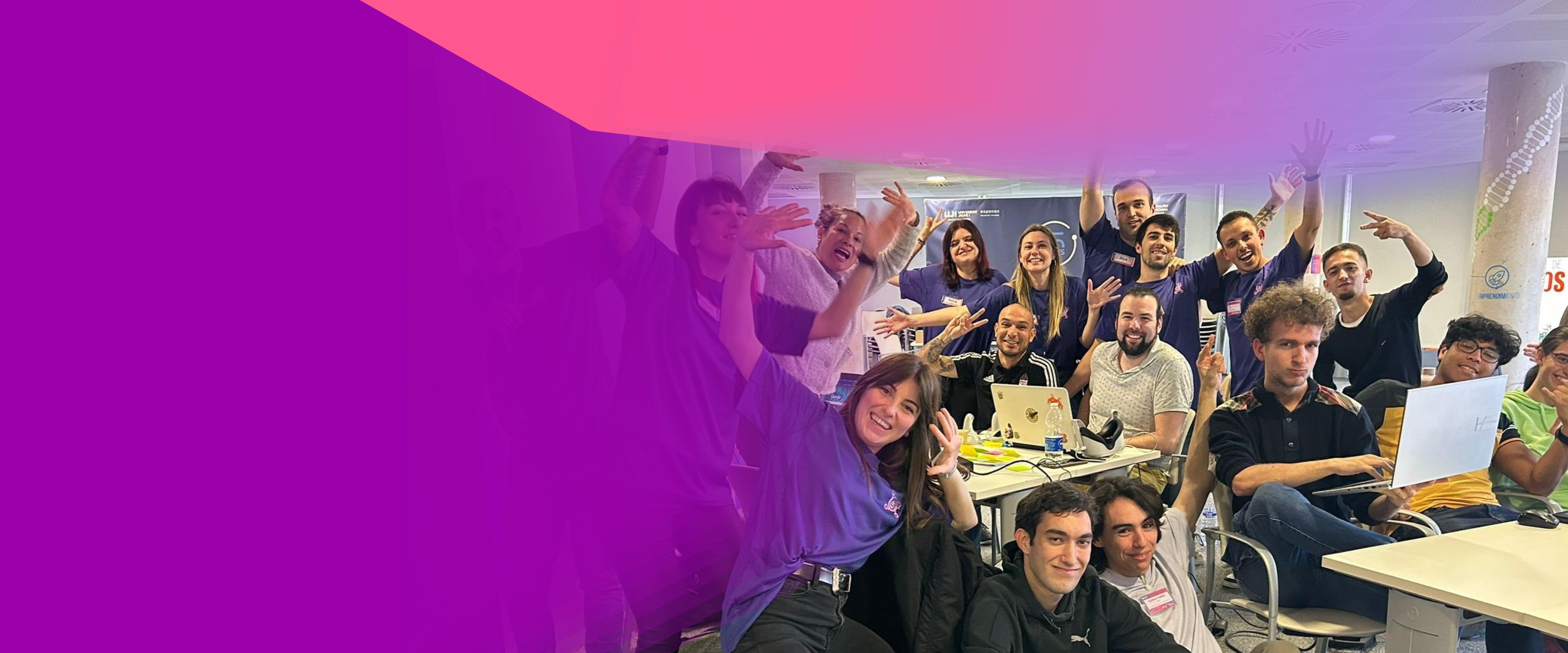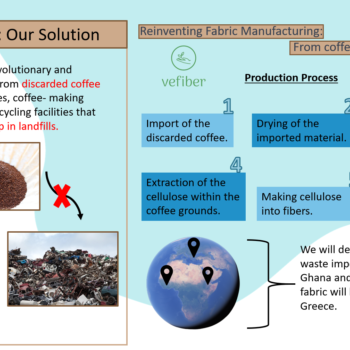LOCAL WINNER
Beginner Awards: Social impact
Vefiber
Solution details
Vefiber is on a mission to revolutionize the fabrics industry through sustainability. By extracting cellulose from coffee-ground waste and byproducts, sourced from cafes, coffee-making companies, and recycling facilities, we reduce waste generated by the coffee industry and transform it into eco-friendly fabric.

Vefiber
Context
Global coffee production in 2022/2023 reached 168.5 million 60-kilogram bags. However, only 0.2% of the total coffee production is used, with the rest 99.8% going to waste. Otherwise, in the coffee market, volume is expected to amount to 6.8 billion kilograms by 2028. Something that will drastically increase coffee waste.
On the other hand, the problem is the environmental impact of traditional fabric production, which involves resource-intensive processes and often relies on non-sustainable materials. This contributes to pollution and resource depletion. Nine cubic meters of water, 400 square meters of land and 391 kilograms (kg) of raw materials are used to provide clothes and shoes for each EU citizen. Laundering synthetic clothes accounts for 35% of primary microplastics released into the environment. Textile purchases in the EU generated about 270 kg of CO2 emissions per person. Europeans use nearly 26 kilos of textiles and about 11 kilos end up in landfill every year.
Who Benefits?
We suggest a type of revolutionary and pioneering fabric made from discarded coffee grounds provided by cafes, coffee-making businesses and coffee recycling facilities that would, otherwise, end up in landfills. We will develop small B2B coffee waste import enterprises in Ghana and Ethiopia. While the fabric will be produced locally in Greece.
Impact
Decent work and economic growth
By achieving enterprises between Ghana, Ethiopia and Greece, we enhance the economic development of these countries, while, also, providing unemployed locals with an ethical workplace in our business cycle.
Responsible consumption and production
Every step of our production process is going to be carried out without the use of fossil fuel, energy overconsumption, hazardous chemicals and/or materials, reckless use of natural sources and inconsiderate discard of by-products.
Climate action
Our company will be producing zero CO2 or any other hazardous gas emissions while enforcing ecological policies and taking place multiple action movements in favour of the environment.
Team work
The team was composed of students from Greece and Ghana
Innovativeness
What's unique about this solution is its utilization of coffee grounds, a byproduct that would typically go to waste, to create sustainable fabrics. This approach is environmentally responsible and can potentially reduce the need for more resource-intensive fabric production methods.
Sustainability
The main revenue streams for Vefiber could come from selling eco-friendly fabrics to fashion brands, retailers, and directly to consumers. Additionally, they may offer consulting services related to sustainable material sourcing. The main costs/expenses may include raw materials (coffee grounds), manufacturing equipment, labour, marketing and advertising, research and development, and operational expenses.


